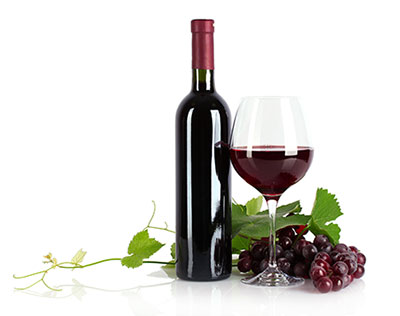ARE THERE POTENTIAL BENEFITS OF DRINKING WINE OR OTHER ALCOHOLIC BEVERAGES?
Moderate drinking – one drink a day for women and two for men – appears to protect some people against heart disease. Especially in people having significant physical activity, who control their weight, and follow a diet high in fruits and vegetables and lower in saturated fats.
Alcohol may help your heart in a few ways:
- It raises HDL or “good” cholesterol;
- It stops blood from clotting. This can be good or bad. It may hold off heart attacks, but it could make you bleed more easily;
- It helps prevent damage caused by high LDL, the “bad” cholesterol.
Drinking a glass of wine is good for the heart in the sense that the main mechanism by which alcohol protects the heart is increasing good cholesterol. The grape skin provides flavonoids and other antioxidant substances that protect the heart and vessels from the damaging effects of free oxygen radicals produced by our body.

WHAT ARE THE CARDIOVASCULAR RISKS ASSOCIATED WITH DRINKING ALCOHOL?
Regular or high alcohol use can hurt your heart and lead to diseases of the heart muscle, called cardiomyopathy. Drinking alcohol regularly also can raise your blood pressure.
Long-term excessive drinking increases your risk of developing problems with your heart.
- Increase your blood pressure. Drinking excessive amounts of alcohol causes raised blood pressure which is one of the most important risk factors for having a heart attack or a stroke. Increases in your blood pressure can also be caused by weight gain from excessive drinking.
- Heavy drinking weakens the heart muscle, which means the heart cannot pump blood as efficiently. It’s known as cardiomyopathy and can cause death, usually through heart failure.
- Heavy drinking can make you more likely to get other serious health problems like liver disease, cancer, and peptic ulcers, among others.
- Binge drinking – four or more drinks for women and five or more for men in a few hours – can lead to stroke, can cause irregular heart rhythms called arrhythmias, and can cause sudden cardiac death.
ALCOHOL AND NUTRITION
Alcohol = “empty” calories. Alcohol does not provide any nutritional value to your diet. If you are trying to lose or control your weight, it is important to know how many calories alcohol can add to your diet. For example, having just one glass of wine per day (85 calories) can add five kilos to your weight in one year.
CAN ALCOHOL INTERFERE WITH MEDICATIONS?
If you take medications, especially antidepressants, antibiotics or pain medications, ask your doctor if it is safe for you to drink alcohol. Combining alcohol with some medications can keep the medications from working as they should and cause serious side effects.
You should not drink alcohol if you are pregnant.

 Vi
Vi 












